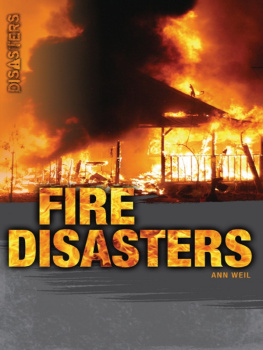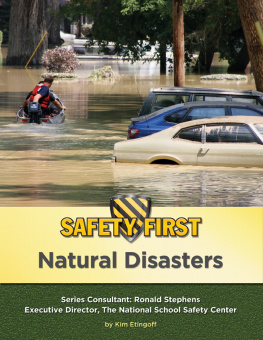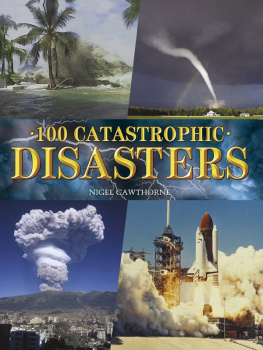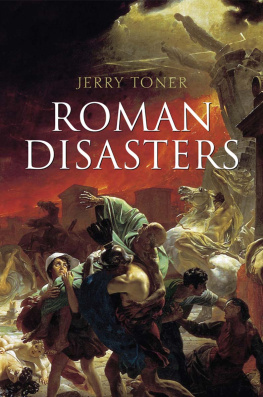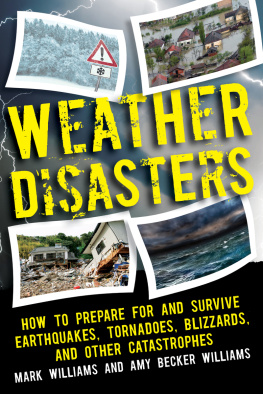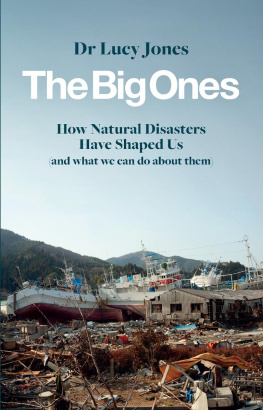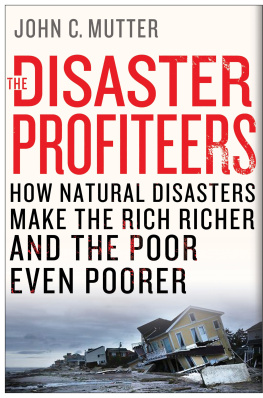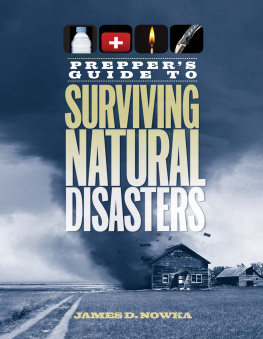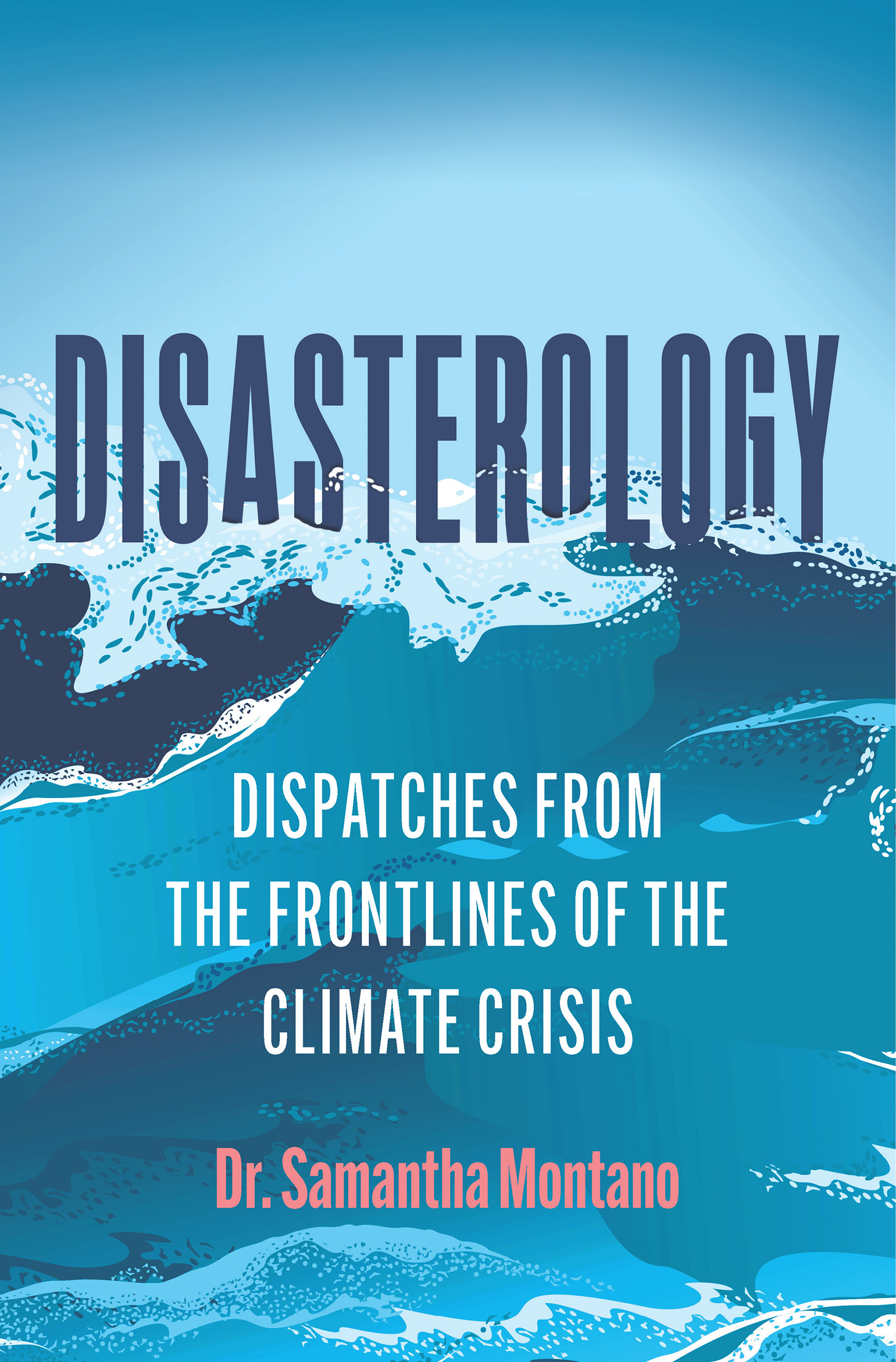
Praise for Disasterology
Dr. Montano provides a compelling and important view of the complexity of disasters. Through deeply personal experiences interwoven with rigorous scientific evidence, she demonstrates that disaster resilience is the responsibility of all aspects of society, but impacts those at societys margins deepest. This is a must read for scholars, practitioners and individuals looking to understand, and ultimately break our myopic understanding of disasters and to work towards a more resilient future for all.
Jeff Schlegelmilch, author of Rethinking Readiness and director of the National Center for Disaster Preparedness at Columbia Universitys Earth Institute
A fascinating on-point analysis of our nations current response to the ongoing climate crisis, and what must be done. Dr. Montanos on-the-ground observations also made the work interesting and relatable.
Sandy Rosenthal, author of four-time Award-winning book Words Whispered in Water
Through both her personal experiences and extensive research in emergency management, Dr. Montano guides us from disaster to disaster, chronicling not only what happened in the moment of landfall for hurricanes, ice storms, and floods, but how disasters have reverberations in communities for years to come. This is an essential read for understanding how we got to where we are as a country, and where we might go next.
Devi Lockwood, author of 1,001 Voices on Climate Change
DISASTEROLOGY
DISPATCHES FROM
THE FRONTLINES OF THE
CLIMATE CRISIS
Dr. Samantha Montano

Dr. Samantha Montano is currently an assistant professor of emergency management at Massachusetts Maritime Academy. She holds a BS in psychology from Loyola University New Orleans and an MS and PhD in emergency management from North Dakota State University. She writes about the intersection of disasters and climate change, gender, and media for the Washington Post, Teen Vogue, CityLab and Vox, among others, and has been interviewed about various disasters by the New York Times, The Atlantic, National Geographic, USA TODAY and the Los Angeles Times. Disasterology is her first book.
www.Disaster-ology.com
For Mom
This is your book too.
Contents
Introduction
At the start of every disaster movie theres a scientist being ignored.
UNKNOWN
IN THE FINAL days of April 1990, my mother went into labor in a town where babies were being born with an increased rate of cancer. It would take years to show the culprit was toxic chemicals from an old coal tar gasification plant that had seeped out of decaying buried drums beneath the town park, where children played under the watchful eye of their pregnant mothers. The women didnt know that while they sat on park benches worrying about scraped knees and twisted ankles, their unborn children were being poisoned.
Like many other communities across the country, our little town of Taylorville in South Central Illinois was on the cusp of a public health crisis. Our mothers had no expectation of the government riding in on white horses to save them, even if they believed they should. My parents, new to town by way of New York City, were viscerally aware of the fight that lay ahead. In Greenwich Village, they had watched the government ignore the AIDS crisis in the 80sleaving them with no illusion that a small town, suffering a comparably small medical crisis, would garner attention or action. It was into this fight, in the last days of April 1990, that I was born and dressed in a little white onesie with, TAG: Taylorville Awareness Group, handwritten in Sharpie across my chest.
As she had during the AIDS crisis, my mother joined her neighbors in a battle that they hoped would one day lead to justice. The group, two hundred strong, demanded the Illinois Environmental Protection Agency and the Illinois Department of Public Health test the contaminated park. It was eventually uncovered that CIPS Gas Plant, the owners of the property, had buried fifty thousand gallons of coal tar underground before selling the land. In 1985, unaware of the buried carcinogens, the new property owners began digging on the site and, in the process, released the hazardous materials.
The families who had suffered direct health impacts sued CIPS and were awarded $3.2 millionnot much given the legal fees and lifelong healthcare bills. It took years of constant public pressure from TAG, but the site was eventually cleaned up. For their efforts, Taylorville joined the ranks of communities that have banded together to fight for their own health and safety in the absence of government regulation, oversight, and intervention.
As protests continued in Taylorville, my parents moved back East to a town where they would not have to worry about their children living so close to a Superfund site. So despite a dramatic beginning, I grew up in Maine where my weekends were spent in the mountains and my afternoons by the sea. Valuing nature was part of the culture, so when our middle school science teacher told us about climate changethen called global warmingmy first thought was the health of the planet, not what it meant for us.
It was a pre-Inconvenient Truth world and our teachers understanding of climate change was rudimentary. She explained that since the Industrial Revolution, people in industrialized countries had released so many greenhouse gasses into the atmosphere that the entire climate of the planet was changing. By 2100 the coral reefs and ice caps could be gone. At twelve years old, something that might happen at the bottom of the ocean and high up in the mountains in over a century was too abstract for me to grasp.
I also did not believe any of it would actually happen. I understood humans were changing the climate, but I thought we would surely do something to stop it. It was only recently, as I listened to youth climate activist Greta Thunberg, that I realized my healthy skepticism of the seriousness of global warming my science teacher casually presented was rooted in the belief that, if this horrific future was a real possibility, we wouldnt be talking about anything else. At my most imaginative, I could not envision that climate change could mean anything worse than slightly warmer Maine winters and an ocean that rose a bit closer to the edges of our lighthouses.
Our teachers presented us with simple solutions. We could stop global warming and save the polar bears by making environmentally friendly choices each day. They gave us worksheets with checklists of tasks that would lessen our carbon footprints: recycle, ride our bikes, turn off lights, plant a tree. These alleged solutions reinforced my belief that this was an easily solvable problem. I rarely worried about climate change because when I looked around, everyone was doing the tasks we were told to do. We carried reusable water bottles and many of our parents started driving electric cars. Every classroom had a recycling bin and a sign reminding us to turn off the lights at the end of the day. My parents often discussed the benefits of affixing solar panels to the roof of our house and the local news noted the possibility of developing a wind energy industry in the state. They said climate change would happen if we failed to act, but we were acting. In my little world, everyone I knew was ticking off the boxes on the checklist.
Next page

